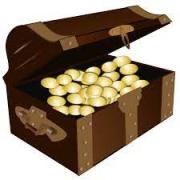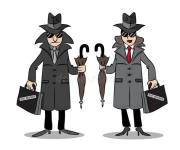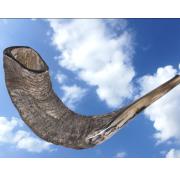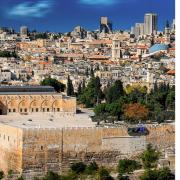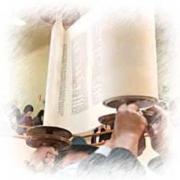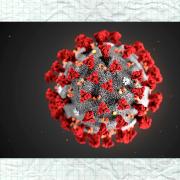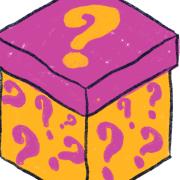The Pious Sinners
Each of us lives in the community, and if you look hard enough, you may notice a behavior that many regard as normal. But is it the right thing to do?!
One of the makkot or plagues Hashem brought upon Egypt was the Makkat of Khoshekh, the Plague of Darkness. Torah tells us that it was so dark that no Egyptian could physically move during it. But if you read the Midrash on this, it gets even more interesting. It says that during this plague, around 12 million Jews died, and the sons of Israel went from house to house and buried them under the cover of the darkness so as not to cause shame to the nation. In every plague, it has affected Egyptians, but in this one, we have buried many of our own.
So, let’s stop here.
During the three days of darkness, we have buried 8 million people. Some say 12 million or even more, but for this article, I will use the 12 million who were buried; since 20% came out from Egypt, which comes out to 3 million people, we have left behind 80% of the nation within those three days, which in total makes 15 million people were living in Egypt before the plague.
But the amazing thing is, no one screams from the podium about this event; why?? During the Holocaust, we lost 6 million, and we make so much noise about that till today, but 12 million - no noise is made, and not much is said. With your permission, please allow me to shed some light on what might have happened there, or to be the one to make the noise I believe needs to be made. As always, everything that is about to follow is my opinion, which I would like to share with others.
In Parashat Shemot 3:3, when Moshe stood at the burning bush and was instructed by Hashem to go to Egypt to free the nation of Israel, Moshe hesitated, and rightfully so. Two individuals have given Moshe the reason to flee Egypt since they reported him to the authorities when he killed an Egyptian while saving another Jew. Now returning, it was not something Moshe wanted to do besides other reasons; he knew they wouldn’t stop and would continue, and may even outperform and amaze themselves and others at their skill level even more than the previous time. And they did precisely so.
When Moshe Rabbenu went to the pharaoh, he performed miracles and brought or triggered a plague that Hashem had performed. It had the intended effect on the Egyptians, as Hashem wanted, but those two individuals were busy spreading a completely different story to the nation.
When Moshe came to Egypt, he told Aharon HaCohen, his brother, and the elders that G-d sent him. Aharon HaCohen believed Moshe, but the elders believed Aharon HaCohen, since they knew him and not his brother, Moshe. Every time the plague happened, Aharon HaCohen confirmed it as the "Doings of the Almighty." But those two—Dathan and Aviram—had a different plan and a story to tell to others who were willing to listen.
So what did these two tell them? They said that Moshe grew up in the House of Pharaoh and learned to perform those "miracles", with no G-d involved; it was Moshe performing at an advanced level of sorcery.
But guess what - Dathan and Aviram were not the lazy bunch, and they didn't mind going miles from house to house - since they had no WhatsApp or other technologies we have today to spread slander, they put the time and effort into this "project." So, the elders living far from Aharon HaCohen believed these two since they were persistent and convincing. They walked far and wide and reached 12 million people - the elders and the ordinary folks had believed them that Moshe was not for real, and all of those "miracles" - plagues were just his tricks. Since Aharon HaCohen and the elders loyal to him could convince only 3 million people, Hashem decided to leave the rest of the nation behind, so 80% of the Nation, 12 million people, were buried during the Plague of Darkness.
So, the merit of the deaths of 12 million people belongs to these two individuals - Dathan and Aviram.
- Hashem made Moshe His choice, but these two didn't agree with Him and smeared Moshe, no matter the effort, the time it took, or the consequences it had on the nation—thus challenging G-d's authority and weakening the belief in G-d of the people of that generation and on.
- The nation - those 3 million people - truly believed in Moshe and Hashem later after they crossed the sea, as it says in Parashat Beshalach - Vayaaminu Ba Hashem Uve Moshe Avdo. However, as a result of the actions of Dathan and Aviram, our nation still struggles with faith in Hashem and Moshe to this day.
- Later in recent history, we have had another similar incident. After thousands of years of following the Derech, or the Way, that Moshe Rabbenu taught us in ancient times, in the early 1800s and on in Europe, new ways to serve G-d were introduced. As a consequence, we lost another 6 million people, and the effects of that are still present today.
As it was, so it will be. The Holy Books tell us of the End of Times. Those past reincarnations will smear the Son of David, and it will be a heavy load.
But all that is done to test Aharon HaCohen and the Elders of that generation. Whether they will back the one G-d has chosen, side with the ones who smear, or ignore it altogether and go on their way, their actions will determine whether The Nation will leave any of its members behind.
That's why Parashat Korach says, And Korach took but never says what he took. Korach was a bystander who was quietly learning - he had witnessed the performance of The Masters of Defamation - Dathan and Aviram. Korach has taken that "experience" - the knowledge of what the lies can achieve when repeated enough times, and their power to convince and rule the masses, and with that experience, Korach has taken with him the above “experts or the consultants,” and together with other "upstanding scholars", they went against Moshe Rabbenu.
So next time you are out there in public, socializing in the community, look around at those who do the Talking and the Walking and those who quietly stand on the side while gaining that "invaluable experience."
That’s why King David said in the Book of Tehillim 1:1, "Happy is the man who does not walk in the advice of the wicked, nor stands in the way of sinners, nor sits in the seat of the scorners."
After causing so many terrible problems in the nation and years of accusations of Moshe Rabbenu by Dathan and Aviram, Moshe Rabbenu calls on G-d again to solve this thorny problem once and for all, and goes for the unthinkable.
Parashat Korach 16:28-30 says: "And Moses said, By this, you shall know that it was Hashem who sent me to do all these things; that they are not of my devising: If these people’s death is that of all humankind, if their lot is humankind's common fate, it was not Hashem who sent me. But if Hashem brings about something unheard-of, so that the ground opens its mouth and swallows them up with all that belongs to them, and they go down alive into Sheol, you shall know that those involved have rejected Hashem."
And so it happened. Dathan, Aviram, Korach, and their families have fallen into the depths. Gemara Bava Batra 74A says that they never died, but they constantly keep on repeating down there deep in the Earth below: Torah is Truth, and Moshe is Truth—a bit too late if you ask me, but they realized that Moshe's doings were directly from G-d.
The same will be true with the Son of David, who also will do the same per the Will of G-d. Just like Moshe Rabbenu, who has judged Korach and his people, the Son of David will take the judgments to the next level by the sense of smell to root out the Dathans, Avirams, and other pious sinners of his time who have quietly operated for years amongst the nation.
Shmuel Katanov






